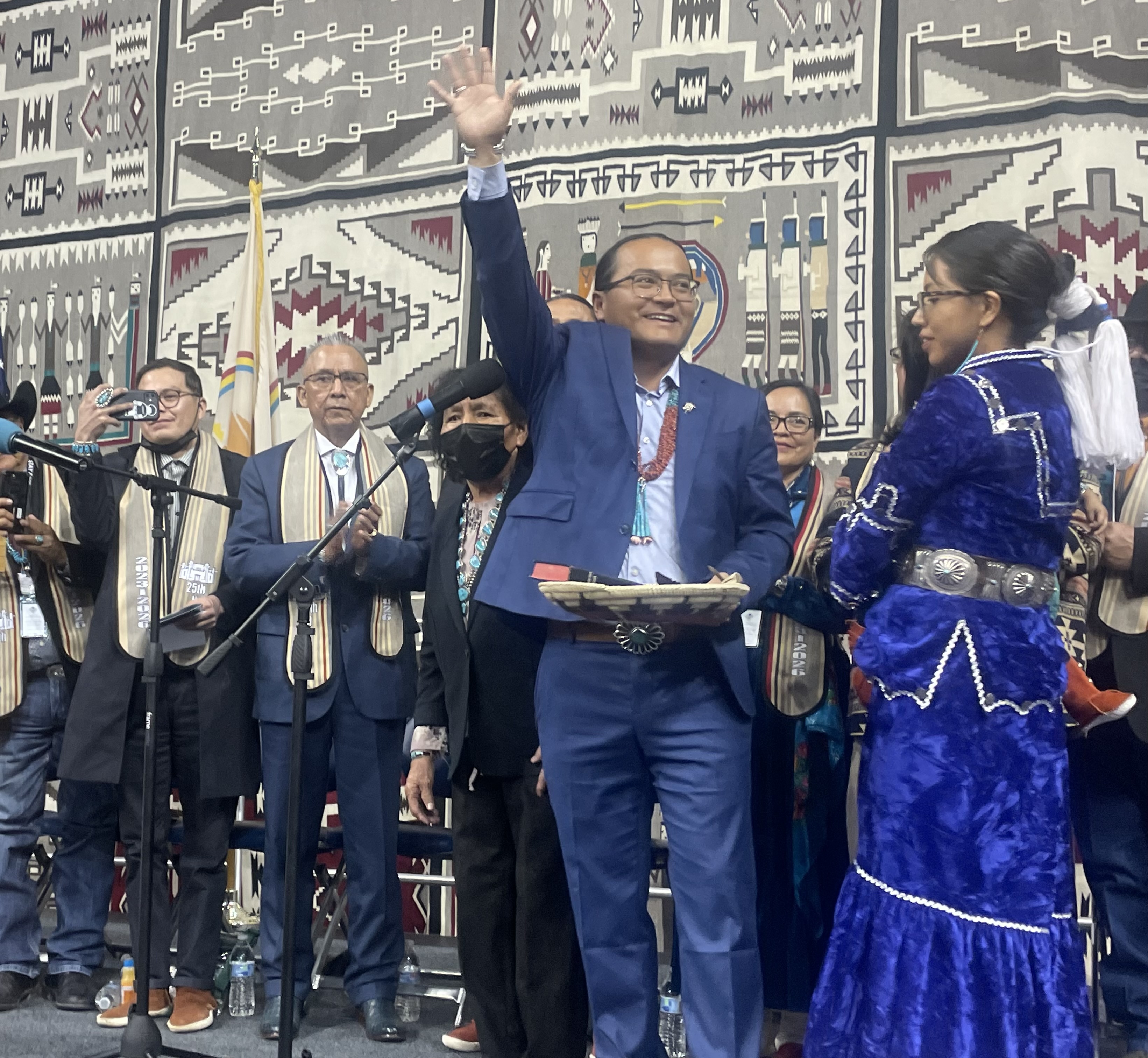
- Details
- By Levi Rickert
Navajo Nation Speaker Crystalyne Curley on Friday introduced legislation seeking the removal of President Buu Nygren and Vice President Richelle Montoya, citing alleged malfeasance, misfeasance, and breaches of fiduciary duty.
The legislation follows a formal ethics complaint filed Friday by Special Prosecutor Kyle T. Nayback in Navajo Nation District Court, accusing President Nygren of multiple violations of the Navajo Nation Ethics in Government Law. The complaint alleges misuse of government purchase cards, nepotism, falsification of documents, and directing staff to perform personal duties including childcare, cooking, cleaning, and managing personal bills.
The filing also claims Nygren improperly hired his father-in-law to an at-will position despite lacking required qualifications, attempted to terminate and appoint the Nation’s Controller unlawfully, and failed to deliver the State of the Navajo Nation address. It alleges improper appointments of division directors and legal staff, misuse of executive authority over Navajo Nation enterprises, including contracts worth nearly $25 million without proper due diligence, and leveraging the tribal treasury for personal loans for himself, family members, and staff.
Vice President Montoya faces removal under the resolution for failing to report alleged misconduct and violations, despite publicly acknowledging issues, and for not fulfilling her legal obligations under her oath of office. The legislation notes that because the president and vice president are elected together, both share responsibility for upholding public trust.
Curley said the action reflects the Council’s duty to uphold Navajo laws, protect public funds, and ensure accountability. “This legislation reflects the voices of chapters, agency councils, and countless Diné community members who have called for accountability,” she said. “Our laws are clear and mandate that leaders must uphold balance, truth, and the highest ethical standards.”
If passed, remedies outlined in the ethics complaint could include removal from office, disqualification from public office for five years, forfeiture of compensation, public reprimand, and restitution to the Navajo Nation.
The legislation will undergo a mandatory five-day public comment period, and approval by two-thirds of the Navajo Nation Council is required. Public comments may be submitted via email or mail to the Office of Legislative Services.
More Stories Like This
NARF Condemns ICE Actions, Says Native Americans Unlawfully DetainedUnited Indian Nations of Oklahoma Urges Tribal Citizens to Carry ID Amid ICE Enforcement Actions
Oglala Sioux Tribe Rejects ICE Conditions for Information on Detained Members
Supreme Court Victory Secures Alaska Native Subsistence Fishing Rights
Three Kings Day Feast Honors Pueblo Self-Governance Rooted in Pre-Colonial Traditions
Help us defend tribal sovereignty.
At Native News Online, our mission is rooted in telling the stories that strengthen sovereignty and uplift Indigenous voices — not just at year’s end, but every single day.
Because of your generosity last year, we were able to keep our reporters on the ground in tribal communities, at national gatherings and in the halls of Congress — covering the issues that matter most to Indian Country: sovereignty, culture, education, health and economic opportunity.
That support sustained us through a tough year in 2025. Now, as we look to the year ahead, we need your help right now to ensure warrior journalism remains strong — reporting that defends tribal sovereignty, amplifies Native truth, and holds power accountable.
 The stakes couldn't be higher. Your support keeps Native voices heard, Native stories told and Native sovereignty defended.
The stakes couldn't be higher. Your support keeps Native voices heard, Native stories told and Native sovereignty defended.
Stand with Warrior Journalism today.
Levi Rickert (Potawatomi), Editor & Publisher

